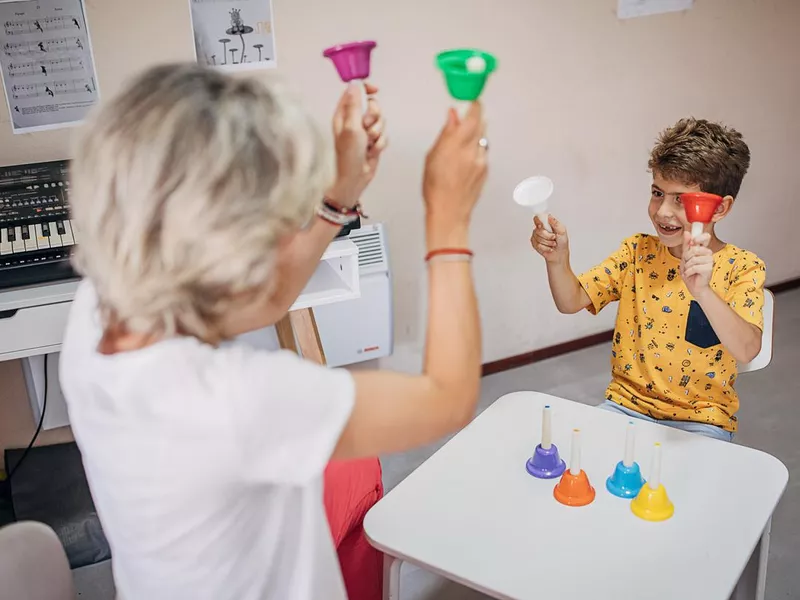Jobs with the Lowest Risk of Automation

Getty Images
Some jobs will likely never be taken over by AI and automation. Why? Because they are either extremely hands on, require special knowledge to carry out or each case is so drastically different from the next, there is no one answer every time.
These roles are something machines and robotics simply cannot replicate, at least at the current date. From music therapists to athletic trainers, these jobs are currently at the lowest risk of automation, according to the U.S. Career Institute.
Mental Health and Substance Abuse Social Workers

Median annual wage: $49,130
Projected growth by 2031: 11.1%
Mental health and substance abuse social workers offer counseling and support, assist with treatment, and work with families to provide education and help for those suffering from mental health or substance abuse issues.
They may connect the afflicted individuals and their families to needed services, advocate for their well-being, and helped reduce the stigma associated with these issues.
Healthcare Social Workers

Median annual wage: $60,840
Projected growth by 2031: 11.1%
Healthcare social workers provide people with the emotional support they need to handle illness, whether short-term or chronic. They also advise family caregivers and patients regarding referrals for other types of services they may need on their healthcare journey, as well as try to keep patients healthy.
As each case is remarkably different from the next, automation for this type of job would be impossible.
Music Therapists

Median annual wage: $59,500
Projected growth by 2031: 11.2%
A music therapist helps improve how we feel, think, and communicate through music. This can include reducing stress, expressing emotions, or even helping with physical skills.
Music therapists often work in place like hospitals, schools and therapy centers.
Art Therapists

Median annual wage: $59,500
Projected growth by 2031: 11.2%
Art therapists work in much the same way music therapists do, but with art. By using visual arts and the creative process around them, these therapists help individuals express themselves, explore their emotions, and address various mental health or emotional challenges.
Art therapy fosters a safe and supportive environment for people to create art and through it, gain insight, manage stress, and improve their overall mental and emotional health.
